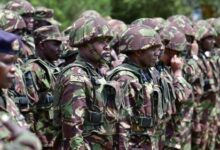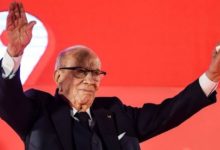
Talks in Russia aimed at agreeing on an unconditional and open-ended ceasefire in Libya failed to achieve a breakthrough on Monday and have been adjourned for the night.
The head of the UN-supported Government of National Accord (GNA), Fayez al-Sarraj, signed a draft ceasefire agreement, while Khalifa Haftar – commander of the eastern-based Libyan National Army (LNA) – requested more time to consider it.
“They have a positive view of the document and asked for extra time until the next morning to decide,” Russian Foreign Minister Sergey Lavrov said of Haftar and his delegation. “I hope they will make a positive decision. Russian and Turkish representatives will continue to offer their assistance.”
Turkey and Russia, which back opposing sides in the conflict, urged the factions on Monday to sign a binding truce to end a nine-month-old war and pave the way for a peaceful settlement.
More than 280 civilians and about 2,000 fighters have been killed and 146,000 Libyans displaced since Haftar launched his assault to seize the capital Tripoli, according to the United Nations.
Turkey was working to ensure the truce became permanent, President Recep Tayyip Erdogan said.
Speaking alongside Italian Prime Minister Giuseppe Conte in Ankara, Erdogan said he will attend a summit in Berlin on Sunday to discuss developments in Libya, along with Conte and Russian President Vladimir Putin.
“I especially hope for the signing of a permanent ceasefire agreement some time soon,” Erdogan told the press conference.
The Moscow talks were held a day after a ceasefire brokered by Russia and Turkey came into force in Libya.
It was unclear if the two leaders al-Sarraj and Haftar would meet face to face.
Haftar’s forces have so far failed to capture the capital Tripoli, where the UN-supported GNA resides, after months of fierce fighting.
Libyan academic Mustafa Feituri told Al Jazeera it was unclear if the temporary ceasefire will hold.
“The stickiest point is the condition of having Haftar’s forces withdraw from southern Tripoli. I do not see Haftar accepting this condition because that simply would mean defeat for him,” Feituri said.
“The other difficult point is the withdrawal of Haftar’s forces from Terhuna, the main supply and control point for his forces. If he leaves this area, there will be infringement. So it is unlikely that he will leave that area.”
Libya has been racked by turmoil since longtime leader Muammar Gaddafi was toppled in a NATO-backed uprising in 2011.
The oil-rich country has since been split between two rival administrations based in the country’s east and west amid a conflict drawing increasing involvement from foreign powers. Since April, the Tripoli-based GNA has been under attack from eastern forces loyal to Haftar, which on January 6 captured the strategic coastal city of Sirte.






